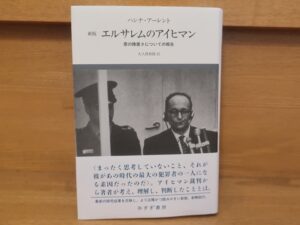アウシュヴィッツと『歎異抄』~親鸞の言葉に聴く ポーランド編⑦

アウシュヴィッツと『歎異抄』~親鸞の言葉に聴く 僧侶上田隆弘の世界一周記―ポーランド編⑦
アウシュヴィッツからクラクフのホテルに帰り、ぼくは何を考えるわけでもなく、ぼんやりと部屋でもの思いにふけっていた。
考えがまとまらない。
アウシュヴィッツはあまりに強烈な体験だった・・・
しばらくは何もする気が起きなかった。
いや、何もできなかったと言う方が正しいのかもしれない。
だが、そんな空っぽになってしまったかのような頭の中に、ふとよぎるものがあった。
「さるべき業縁のもよほさば、いかなるふるまいもするべし」
そう。
以前エルサレムのホロコースト記念館、ヤド・ヴァシェムの記事でもご紹介した『歎異抄』の言葉だった。

この言葉は親鸞聖人が生きていた時代、アウシュヴィッツの悲劇からおよそ700年も前に親鸞聖人が述べていたことだった。
未来のことを予言するかのような親鸞聖人の言葉。
世の中を、そして人間の本質を凝視する親鸞聖人のまなざしの深さには改めて驚かざるをえない。
で、あるのならば、やはりもう一度『歎異抄』をしっかり読んでみよう。
幸い、ぼくはkindleをこの旅のお供にしている。
その中の蔵書の一つに『歎異抄』も入れてあったのだ。
「さるべき業縁のもよほさば、いかなるふるまいもするべし」
これも何かのご縁。
この言葉が収められている『歎異抄』第13条の主要な部分をぼくなりの意訳でこれからご紹介させていただこう。
改めて確認だが、『歎異抄』は親鸞聖人の弟子が書き記した書物。
そのため、文章は唯円の一人称で綴られていく。
そしてこれからご紹介する文章も唯円の語りと、それに対する師匠親鸞とのやりとりが繰り広げられていく。
では、ご一緒に『歎異抄』の世界を味わっていこう。
「よい心の起こるのは、宿業、すなわち自分の中に宿る因縁、環境によるものなのだ。
同じように、悪事を働こうと思うのも、悪い宿業がはたらくからなのだ。
亡くなられた師、親鸞聖人はかつてこうおっしゃられていた。
「ウサギの毛、ヒツジの毛の先にある塵ほどの罪も、宿業によるものではないということはありえない」と。
また生前のある時、親鸞聖人は私に「あなたは私の言うことを信じるか」と問うてこられたことがあった。
そこで私は「はい、信じます」と答えた。
すると親鸞聖人は「ならば、その言葉に二言はないな」と重ねて問うてこられた。
私は慎んでその問いに対する答えを誓った。
すると親鸞聖人はこう言われたのである。
「では、あなたに言いましょう。人を千人殺しなさい、必ず成仏できるでしょう。」
「いえ・・・そうおっしゃられても、私のこの器量では一人たりとも殺すことはできません。」
「であるのならばなぜ私が言ったことを信じるとあなたは誓ったのか。
これでわかったであろう。
何事も心に思ったことを実行できるのならば、成仏のために千人殺せと言われれば殺せてしまうのだ。
あなたが人を殺さなかったのは、人を殺す縁があなたになかったからなのだ。
あなたの心が良いから殺さなかったのではない。
また反対に、殺したくないと思っていても百人、千人を殺すことも人間には起こってしまうのだ。」
以上が『歎異抄』13条の主要な物語部分だ。
この文脈を受けて、「さるべき業縁のもよほさば、いかなるふるまいもするべし」という言葉が後に語られてくる。
親鸞聖人は弟子唯円に対して「人を千人殺せば救われる。やりなさい」と言った。
それに対して唯円は「私にはそんな器量はございません。人を殺すなんて大それたことはできません」と答える。
そこで親鸞聖人はたたみかける。
「なぜ二言はないと誓ったのにそれを破るのか」と。
つまり、親鸞聖人が言いたかったのはこういうことだ。
「あなたを信じます」と誓った唯円。
唯円はその時、自分の思いでそれを述べた。
そして実際に親鸞のことを信じていた。「必ずやあなたの言うことをやり遂げます」と。
しかし、親鸞の「人を殺せ。さすれば成仏できるであろう」という命令には従えなかった。
ついさっき「あなたを信じます。必ずやり遂げます」と誓った唯円の思いはどこに行ってしまったのだ?
二度も親鸞に念を押された上で誓った唯円の思い。
それはそんなに軽いものだったのか?
いや、断じて違う。
でも、それがあっけなくどこかへ飛んで行ってしまったのだ。
これが親鸞の言いたいことだった。
私達の思いなど、いつどこに吹き飛んでいってしまうのかわからない代物なのだ。
唯円はたまたま人を殺す縁を持っていなかったから殺さなかったにすぎない。
もしその縁を持っていたとしたら、唯円がそのことをどう思っていようがやってしまい得るのだ。
唯円が殺人をどう思っていたとしても、縁の力、状況の力はそんなものをいとも簡単に吹き飛ばしてしまう。
縁さえあれば、人はやってしまうものなのだ。
人殺しという大それた罪でなくとも、日常的な些細な罪もそうだ。
人に嘘をついたり、やるべきことを怠けたり、悪口を言ったり。
そのような小さなありふれた罪を、親鸞はこの物語の中でウサギやヒツジの毛の先にあるような無数の塵と例えている。
なんとも絶妙な例えではないか。
目にするのも困難なありふれた罪。
それですら縁の力で起こらないものなどないと親鸞は言っているのだ。
それほど親鸞は人間の意思の力に対して疑問を投げかけている。
そして縁、すなわち状況のもたらす圧倒的な力を親鸞は凝視している。
アウシュヴィッツを通して感じたこともやはりそこにある。
縁さえあれば誰もがやりかねない。
ナチスですら国民が選んだのだ。
当時のドイツの空気は、人々にそうさせるような縁をもたらしていたのだ。
そしてある地点を超えると、もう後戻りはできない。
すべてがエスカレートしていく。
その結果がホロコーストだったのだ。
アウシュヴィッツを通して、『歎異抄』の言葉を学んでみた。
親鸞聖人も地獄のような時代を、苦しむ人々と共に生き抜いた人だ。
一体どれほどの人間のありさまを見てこられたのだろう。
きっと、ぼくには想像もつかない世界がそこには繰り広げられていたのだろう。
やはり偉大な思想家の言葉は時代を超えるものだと痛感した。
だからこそ時が経った今でも大切に読み継がれているのだろう。
続く
次の記事はこちら

前の記事はこちら

関連記事












コメント